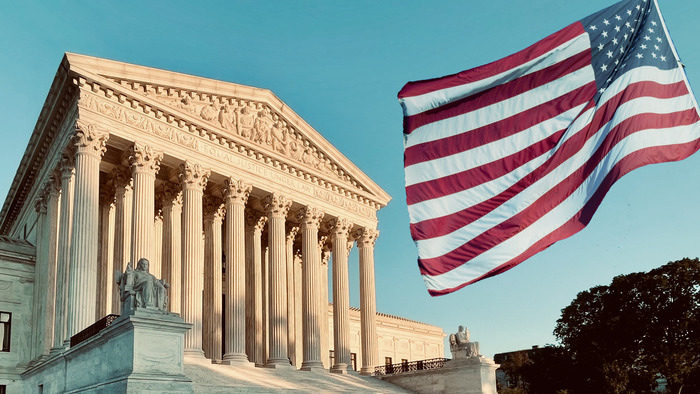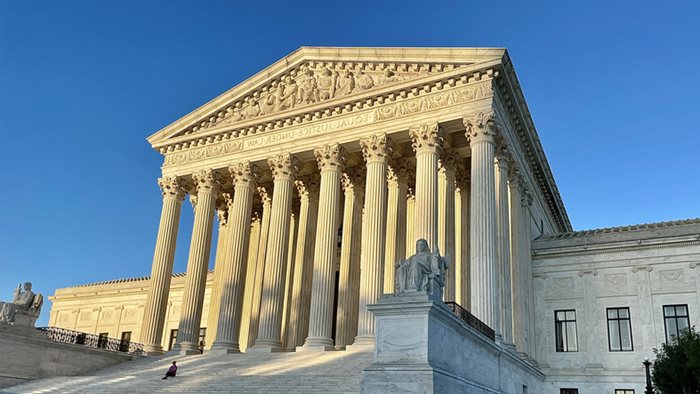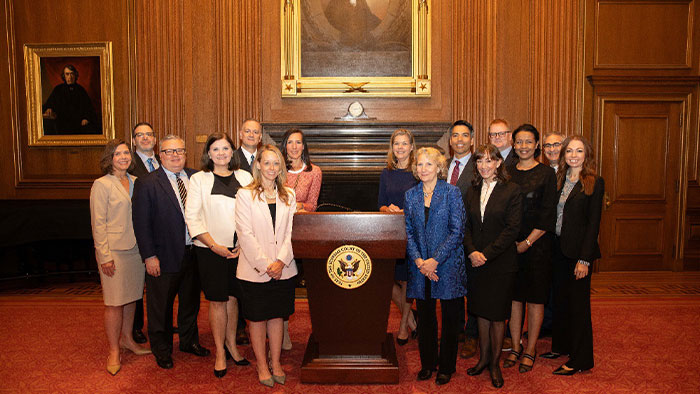Industries Praise Results in Braille Gift Card Litigation
Retail, Restaurant and Theater Advocates Agree
- By [ Deborah White ]
- Washington, DC
- 05/01/2020
Organizations representing retailers, restaurants and movie theaters today praised a federal judge’s decision to reject multiple Braille gift card lawsuits as “meritless” and not supported by any interpretation of the Americans with Disabilities Act.
“We are grateful that the court recognized the true nature of these complaints and put a stop to them. They were never about accessibility. Retailers, restaurants and movie theaters welcome patrons of all abilities. Unfortunately, this doesn’t matter to the law firms behind these lawsuits that are willing to manufacture controversies for the sole purpose of trying to extract monetary settlements from businesses,” said Deborah White, president of the Retail Litigation Center. “We are grateful that didn’t happen here.”
U.S. District Judge Gregory H. Woods, sitting in the Southern District of New York in Manhattan, last week dismissed multiple cases. The judge said the plaintiffs lacked standing, saying in one case that they had failed to show they would be harmed by the defendant’s failure to sell Braille gift cards, and also saying the ADA does not require retailers to sell specialty goods for the visually impaired.
In addition to the legal rationale, Woods quoted an argument made in a friend-of-the-court brief filed by the associations that adding Braille to gift cards would be challenging because of the size of Braille characters:
“Braille is big. It takes 10 volumes of Braille for example to publish Harry Potter and the Goblet of Fire. Printing Webster’s Unabridged Dictionary requires 72 volumes. Using ADA-mandated size and spacing, the industry-standard gift card could only fit between 11 and 14 Braille characters horizontally and 5 lines, vertically. Thus, a card could hold, at most, 55 to 70 Braille characters.”
The cases arose last fall when a handful of law firms filed cookie-cutter complaints using serial plaintiffs against 250 retailers, restaurants and movie theaters alleging that the defendants had violated the ADA by not selling Braille-embossed gift cards. The Retail Litigation Center, Restaurant Law Center, National Retail Federation, Retail Gift Card Association, and the National Association of Theater Owners participated in the cases by filing friend-of-the-court amicus briefs urging courts to dismiss the suits as baseless.
The nearly identical nature of the complaints filed by the plaintiffs’ attorneys was noted in Woods’ decision in one of the cases, Dominguez v. Banana Republic.
“Computers have made a lot of things in life easier,” Woods wrote. “Copy-and-paste litigation is one of them. The pitfalls of such an approach are evident here where… Plaintiff’s opposition… failed to even correctly identify what Defendant sells (referring to Banana Republic as a “food establishment”.) Although it features the fruit in its name, Banana Republic does not sell bananas.”
The ADA requires places of public accommodation – including retailers, restaurants and theaters – to provide equal access to their goods, but it does not dictate what inventory they must keep on their shelves. For example, it would violate the ADA for a camera store to refuse to sell cameras to a disabled person, but the store is not required to stock cameras specially designed for the blind. A bookstore is not required to stock Braille versions of books, and a restaurant is not required to offer foods that meet certain dietary needs.
“Restaurants bring people from all walks of life together in the spirit of hospitality. Restaurants ensure this hospitality for visually impaired guests in different ways, some offer large font menus, menu reading services, or menus in braille. While some restaurants also offer gift cards in braille, this is not a requirement of the American with Disabilities Act or needed to take advantage of the full offerings at a restaurant,” said Restaurant Legal Center Executive Director Angelo Amador.
“Retailers want to serve all of their customers, disabled or not,” National Retail Federation Chief Administrative Officer and General Counsel Stephanie Martz said. “Gift cards are just one way to interact with a store, and the lack of Braille doesn’t keep a retailer from accommodating the needs of a visually impaired customer. We hope all of these cases will be rejected so retailers can focus on serving their customers rather than defending themselves against frivolous lawsuits that divert resources from legitimate concerns.”
###
Retail Litigation Center
Directed by the chief legal officers of the country's leading retail companies, the Retail Litigation Center (RLC) is the only organization dedicated to advocating for the industry's top priorities in the federal and state judiciary. The RLC also works with leading law firms and retail corporate counsel to develop forward-thinking strategies to combat meritless mass action litigation. Founded by the Retail Industry Leaders Association (RILA) in 2010 as an independent organization, the RLC is a 501(c)(6) membership association open to all retailers and select law firms.
Restaurant Law Center
The goal of the Restaurant Law Center is to protect and advance the restaurant industry, particularly by serving as the industry’s voice in federal and state courts. The Restaurant Law Center is an independent 501(c)(6) public policy organization affiliated with the National Restaurant Association—the largest food service trade association in the world. The industry it represents is comprised of more than one million restaurants and other food service outlets employing about 10 percent of the U.S. workforce. The Law Center endeavors to promote pro-business laws and regulations that allow restaurants to continue growing, creating jobs and contributing to a robust American economy.
National Retail Federation
The National Retail Federation, the world’s largest retail trade association, passionately advocates for the people, brands, policies and ideas that help retail thrive. From its headquarters in Washington, D.C., NRF empowers the industry that powers the economy. Retail is the nation’s largest private-sector employer, contributing $2.9 trillion to annual GDP and supporting one in four U.S. jobs — 52 million working Americans. For over a century, NRF has been a voice for every retailer and every retail job, educating, inspiring and communicating the powerful impact retail has on local communities and global economies.
Retail Gift Card Association
The Retail Gift Card Association is the only nonprofit trade association representing the gift card industry, and is comprised of members committed to promoting and protecting the use of restaurant and retail gift cards. RGCA members follow a code of principles that promotes best practice standards that support consumer-friendly policies for the purchase and redemption of gift cards.
National Association of Theatre Owners
The National Association of Theatre Owners is the largest exhibition trade organization in the world, representing over 33,000 movie screens in all 50 states, and additional cinemas in 97 countries worldwide.
Headquartered in Washington, D.C., with a second office in Los Angeles, California, NATO represents its members in the heart of the nation’s capital as well as the center of the entertainment industry. From these vantage points, NATO helps exhibition influence federal policy-making and work with movie distributors on all areas of mutual concern, from new technologies to legislation, marketing, and First Amendment issues. www.natoonline.org
Tags
-
Legal Affairs & Compliance
-
Retail Litigation Center



